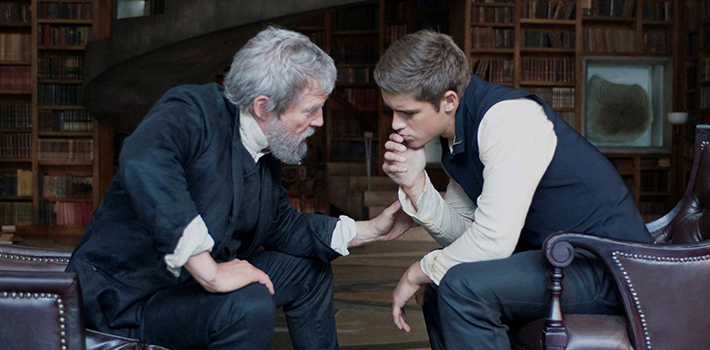
EspañolOne of the most influential works of fiction, at least in the modern era, is Nineteen Eighty-Four by George Orwell. First published in 1949, Orwell’s words will continue to imbue the English language for decades to come, perhaps centuries, such was his brilliance.

In Animal Farm too, he conveys the bleak reality of totalitarianism. He also captures transcendent themes, particularly the hypocrisy and slogans of the so-called revolutionaries who take the reins of power and impose tyranny.
There is a problem, however, with Orwell’s narrative. The question remains: what if collectivist dreamers were able to create their new society without ugly tyranny? What if their promised equality and assigned opportunity for all could come to fruition in a harmonious manner — would we want it?
With The Giver (1993), Lois Lowry examines this very question, albeit unintentionally, she has admitted. Her piece of the puzzle, a futuristic utopia outed as a dystopia, leaves little doubt on the matter.
But the instrument as much as the message makes her work monumental. Her novel is so clean, readable, and captivating that both children and adults can appreciate its grave message. In turn, she has garnered both peer recognition and sold over 10 million copies.
From Print to Film
Such has been the impact of The Giver, combined with its whole-family appeal, a film adaptation seemed inevitable, and its North American release came on August 15. Director Phillip Noyce sought to remain true to the story, particularly given its room for interpretation, so he had Lowry present on the set in South Africa, and it shows.
http://youtu.be/iJNNugNe0Wo
Of course, in 97 minutes one cannot offer the richness of the novel, nor allow its themes to be digested slowly. However, the impeccable cast, including Jeff Bridges, Meryl Streep, and Katie Holmes, alongside talented newcomers, do the story justice, given the medium they have to work with.

In fact, in some regards, the film rounds out the story even better than the novel, and the themes are far less subtle. Given 20 years since publication, Lowry may have seen the questions left hanging, so these are addressed.
The film also brings in more drama, as it highlights explicit conflict between the giver (Bridges) and the chief elder (Streep), and the central character and narrator Jonas (Brenton Thwaites) and his longtime-friend Asher (Cameron Monaghan). In both cases, the pairs are wrestling between the status quo of obedience and conformity and the adventure and romance of the unknown.
What makes this standoff so gripping is that those engaged in it struggle to conceive what is beyond their cocooned community, and what would come of its liberation. Even as Jonas cannot subdue his hunger for more, particularly as he realizes what is missing, he struggles to communicate such foreign ideas to others.
Here too, the filmmakers deserve praise. With flashback memories, handed from the giver to Jonas, they effectively contrast the security and predictability of the colorless community with the love and humanity that have been forgotten.

This is the choice the community faces, whether to open the door to what once was. The chief elder makes her case against it in a poised manner that commands authority: “Love is just passion that can turn … into contempt and murder.… People are weak; people are selfish. When people have the freedom to choose, they choose wrong.”
Is she right? Those who clamor for paternalism, even its contemporary “soft” or “libertarian” forms, believe so.
For as long as these elitist views remains prevalent, and those subject to them lack the courage to forge their own paths, The Giver will remain pertinent and noteworthy — both the novel and the film.
That doesn’t appear to be changing anytime soon, but let me be wrong, and you’ll hear no complaints on this end.
 Versión Español
Versión Español












